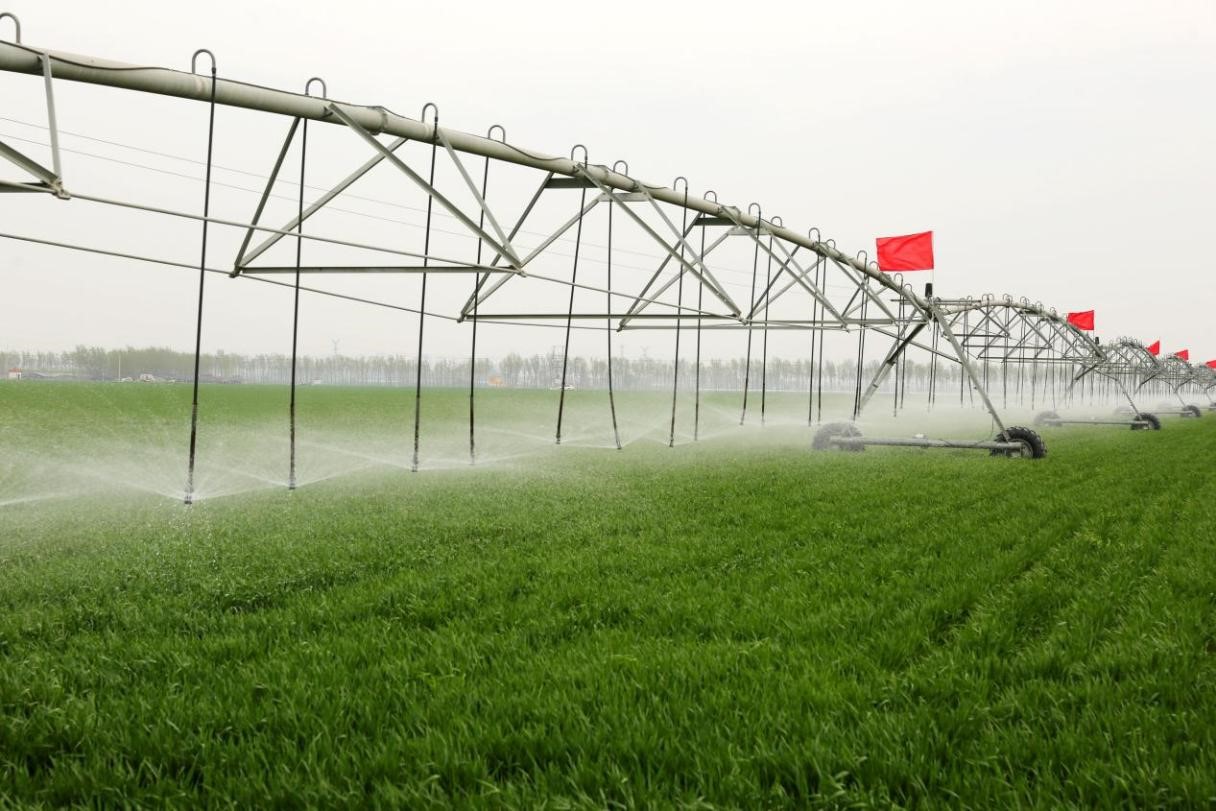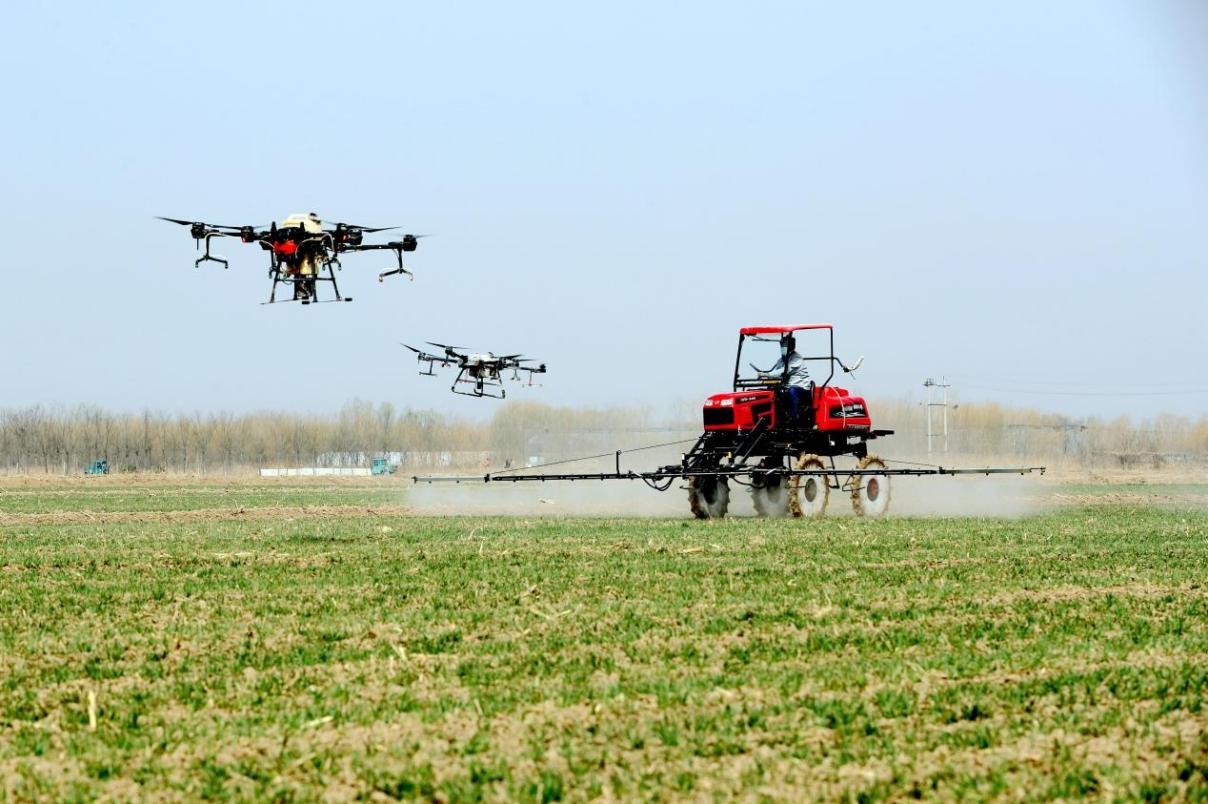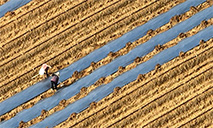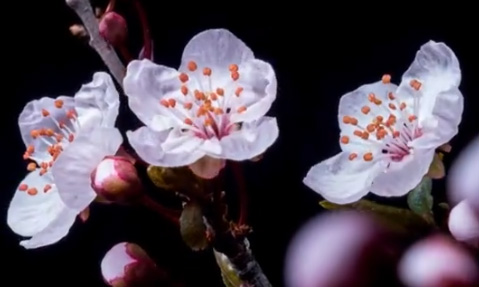China turns saline-alkali land in Yellow River Delta into high-yield farmland
Li Ruitian, who works for a demonstration base of modern agricultural experiment on saline-alkali soil in the Yellow River Delta in east China’s Shandong province, squatted down to check on the growth of crops in a vast expanse of green farmlands as lush crops swayed in the spring wind.

Photo shows wetlands of the Yellow River Delta National Nature Reserve in east China’s Shandong province. (People’s Daily Online/Zhao Yingli)
Just a few years ago, the fertile land beneath his feet was saline-alkali soil in endless whiteness, while now it’s the demonstration base of the Agricultural High-tech Industrial Demonstration Area of the Yellow River Delta in Dongying city, Shandong province.
In the vast river delta where China’s second-longest waterway, the Yellow River, splits and spreads out into several branches before entering the sea, fresh water mingles with salt water, creating a fragile ecological environment.
Due to the high salt content in soil, almost no plants grew in the Yellow River Delta, except a few saline-alkali tolerant ones like seepweed.
In 2009, China started to exploit and harness barren alkaline land with plans. In the next year, the state farm Li worked for was transformed into an efficient eco-agriculture demonstration area in Dongying city. In October 2015, China’s State Council approved the plan to establish the Agricultural High-tech Industrial Demonstration Area of the Yellow River Delta in Dongying city, turning the eco-agriculture demonstration area into the second national agricultural high-tech industrial demonstration zone in the country.
At the same time, Li became a staff member, taking care of the new varieties of saline-alkali tolerant crops planted by researchers in the experimental fields of the demonstration area.
Following the establishment of the demonstration area, a major campaign was launched to leverage scientific and technological achievements to bring new looks to the estuary of the Yellow River in Dongying city.

A 500-meter-long self-propelled truss sprinkler irrigates a wheat field in Lique township, Guangrao county, Dongying city, east China’s Shandong province, April 11, 2022. (People’s Daily Online/Zhou Guangxue)
Researchers gradually grew saline-alkali tolerant food crop varieties including triticale, quinoa, and soybean and saline-alkali tolerant forage crops such as alfalfa and oat in the demonstration base of modern agricultural experiment on saline-alkali soil, which covers an area of 12,800 mu (about 853.33 hectares).
The once barren river delta has been adorned with an increasing number of green plants, thanks to the efforts to promote the application of high and new technologies and the support from favorable policies and measures rolled out by the local government.
“Our team has searched every corner of the Yellow River Delta for high-quality germplasm resources in a bid to breed saline-alkali tolerant plants,” said Xu Hualing, head of the halophyte and eco-agriculture research center under the agricultural science research institute of Dongying city.
According to Xu, The Agricultural High-tech Industrial Demonstration Area of the Yellow River Delta has built a germplasm resource bank, serving as a solid foundation for subsequent efforts to breed saline-alkali tolerant plant varieties. Up till now, the bank has collected a total of 15,000 copies of germplasm resources covering domestic and foreign halophytes of 89 species, 42 genera and 13 families, with the types of the salt-tolerant plants including food crop, forage grass, medicinal plant, vegetable and fruit.
Research teams concentrating on breeding such varieties have preliminarily developed 37 new varieties and planted them in 92,000 mu of land for demonstration. These new plant varieties have increased the yield of land by 15 percent to 20 percent per mu.
“Water holds the key to harnessing saline-alkali land,” pointed out Wang Guangmei, head of the Yellow River Delta field ecosystem scientific observation and research station under Yantai Institute of Coastal Zone Research, Chinese Academy of Sciences.
By installing water-saving irrigation devices, such as micro spray hose and dripping irrigation tubing, researchers have continuously reduced the salt content in the soil of the Yellow River Delta and significantly improved the soil properties.

A farmer drives plant protection machine to spray pesticide in a wheat field of a family farm in Shikou township, Dongying city, east China’s Shandong province, March 10, 2022. (People’s Daily Online/Liu Zhifeng)
During the past nearly three years, soil fertility in the demonstration base of modern agricultural experiment on saline-alkali soil has been generally raised by one to two grades.
Wang’s team has just been laying drip irrigation pipes in the experimental fields of the demonstration base. The team hopes to reduce the salt content in the soil of the area from between 0.4 percent and 0.6 percent to less than 0.3 percent and save fresh water by more than 38 percent in irrigation in three years.
The Agricultural High-tech Industrial Demonstration Area of the Yellow River Delta is listed among the country’s national high-tech industrial development zones and enjoys related current policies, according to the State Council’s reply to the proposal submitted by Shandong province for the establishment of the demonstration area.
In collaboration with research institutes, the demonstration area has built five pilot-scale research and development platforms for work related to smart agricultural machinery, seed breeding for saline and alkaline land, biotechnology, beneficial insect resource, and observation of saline-alkali land ecosystem as well as a protected agriculture test and validation platform. So far, it has gathered 116 expert teams from 56 scientific research institutes.
China has 1.5 billion mu of saline-alkali land, with 500 million mu has the potential for development and utilization.
It is anticipated that the development of saline-alkali tolerant crops would play an important role in guaranteeing food security in China, and more saline-alkali land in the country would become high-yield farmland.
Photos
Related Stories
- China must ensure area of farmland above redline: gov't work report
- China's Taoyuan County steps up high-standard farmland construction
- Farmers enjoy more time for work, leisure after cropland trusteeship program frees them from heavy toil in the fields
- China to add more high-standard farmland by 2030
- Aerial views of farmlands in Jiangxi Province
- China builds over 5.59 mln hectares of high-standard farmland in 2020
- China to stick to strictest farmland protection system: draft outline
- China to return 820,000 hectares of farmlands to forests in 2017
- Mosaic-like Haikou farmland from above
- Aerial view of farmlands in China's Guangxi
Copyright © 2022 People's Daily Online. All Rights Reserved.










